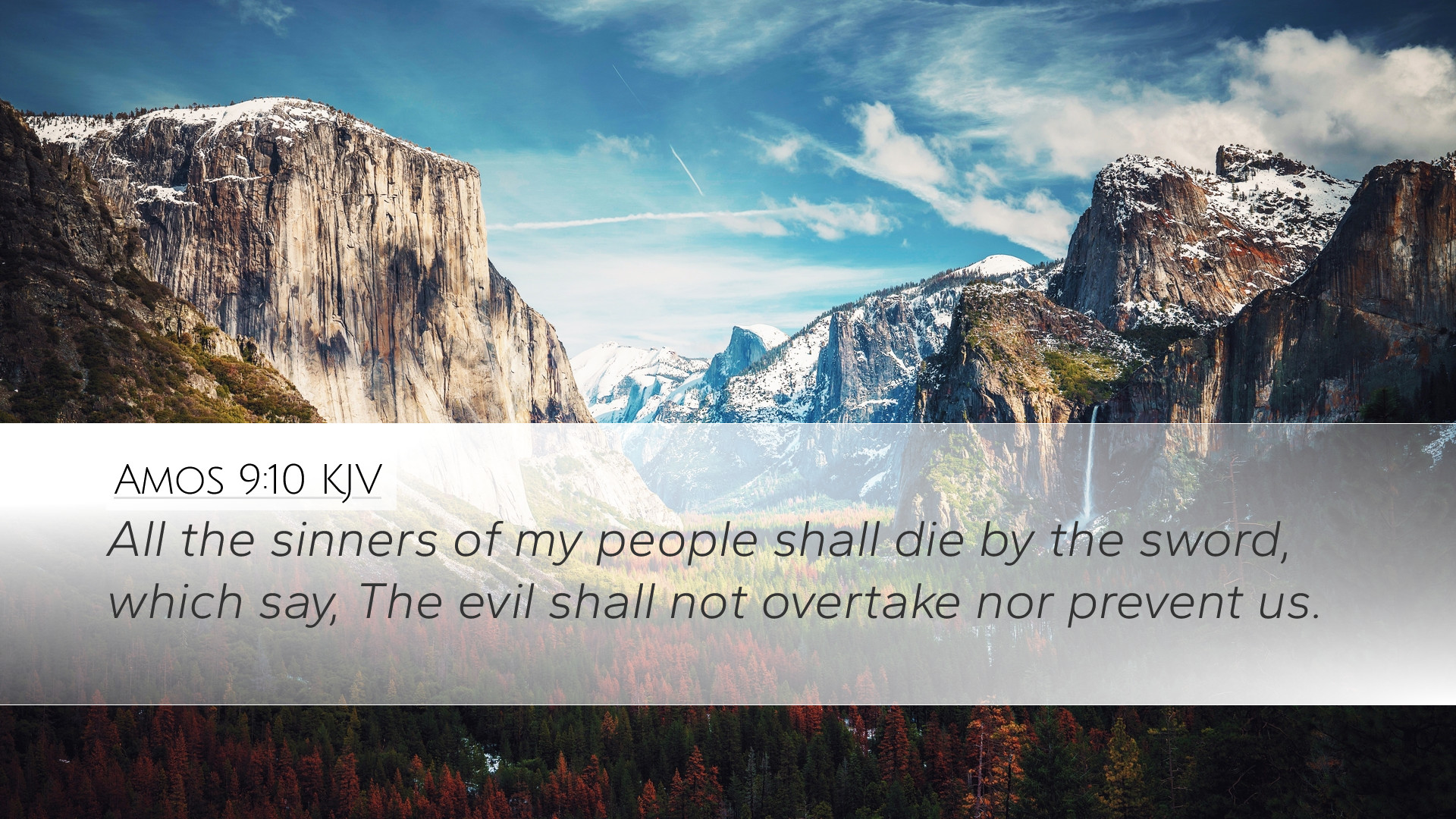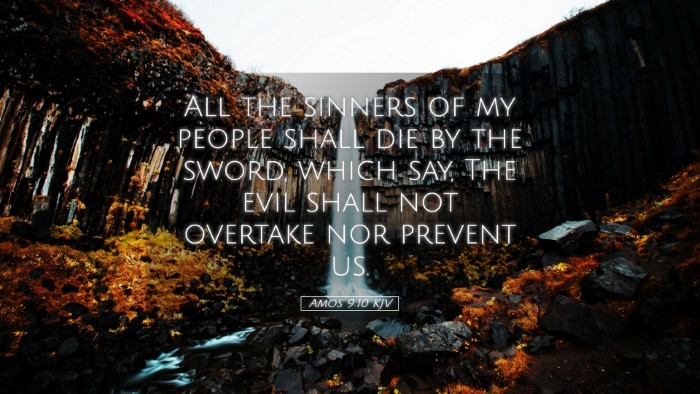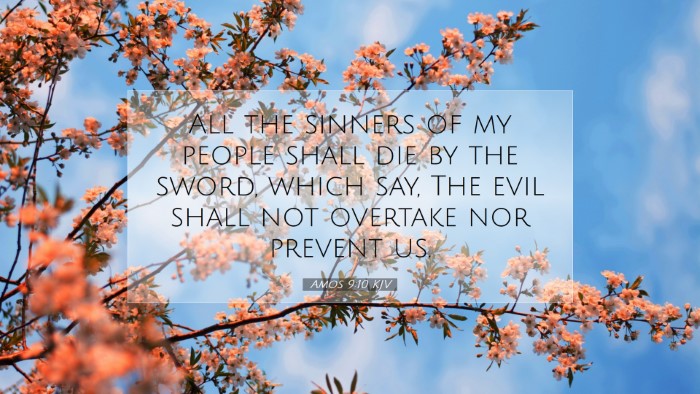Old Testament
Genesis Exodus Leviticus Numbers Deuteronomy Joshua Judges Ruth 1 Samuel 2 Samuel 1 Kings 2 Kings 1 Chronicles 2 Chronicles Ezra Nehemiah Esther Job Psalms Proverbs Ecclesiastes Song of Solomon Isaiah Jeremiah Lamentations Ezekiel Daniel Hosea Joel Amos Obadiah Jonah Micah Nahum Habakkuk Zephaniah Haggai Zechariah MalachiAmos 9:10
Amos 9:10 KJV
All the sinners of my people shall die by the sword, which say, The evil shall not overtake nor prevent us.
Amos 9:10 Bible Commentary
Amos 9:10 - Commentary Summary
Amos 9:10 states: "All the sinners of my people shall die by the sword, which say, The evil shall not overtake nor prevent us." This verse captures a profound and serious warning against complacency in sin and the inevitable consequences that follow.
Contextual Background
The Book of Amos is a prophetic text that addresses the northern kingdom of Israel in a period of relative prosperity but moral decay. Amos, a shepherd by trade, was called by God to speak against the injustices and transgressions of the nation.
Theological Implications
- Divine Judgment: The verse emphasizes that divine judgment is certain for those who persist in sin, indicating that a lack of repentance will lead to dire consequences.
- False Security: Those who say, "The evil shall not overtake nor prevent us," exhibit a profound misunderstanding of God’s holiness and the nature of sin. This represents a common attitude where people might believe they are exempt from divine consequences due to their status or previous blessings.
Insights from Commentators
- Matthew Henry: Henry elaborates that God's mercy does not eliminate the necessity for justice. He underscores that God's people, while favored, must heed the warning that sin brings destruction. The passage serves as a reminder that spiritual privilege does not protect one from divine retribution if one continues in iniquity.
- Albert Barnes: Barnes interprets the phrase "the sinners of my people" as a categorization of those who, despite being part of God's chosen community, persist in their sinful ways. He stresses that God’s chosen people are not insulated from judgment; rather, their accountability is heightened due to their knowledge of God’s law. He notes that the phrase also indicates that not all in Israel will perish, but there is a clear distinction between the righteous and the wicked.
- Adam Clarke: Clarke notes that the phrase "die by the sword" implies a violent and sudden end, indicating the seriousness of the impending judgment. He emphasizes the folly of those who believe that their identity as God’s people will shield them from the consequences of their actions. Clarke aligns this warning with the broader theme of prophetic literature, which consistently calls God's people to repentance and faithfulness.
Practical Application
This verse carries significant implications for contemporary readers, especially pastors and theologians who are charged with delivering messages of both hope and warning. The principle that judgment begins with God's household is an ever-relevant reminder of the need for integrity in faith.
- Call to Repentance: As leaders and teachers, there is a responsibility to call congregants to a sincere examination of their lives, urging a movement away from complacent attitudes toward sin.
- Recognizing False Security: This verse challenges the notion that mere association with a religious community provides immunity against judgment. Leaders are called to teach that true faith is evidenced by consistent and faithful living.
- Contextualizing God’s Justice: In preaching, the balance between God’s mercy and justice must be maintained. This chapter serves as a reminder that while God is a loving figure, His holiness demands that sin be addressed.
Conclusion
Amos 9:10 serves as a stark reminder of the consequences of sin, urging readers to examine their lives and the state of their communities. The insights from Matthew Henry, Albert Barnes, and Adam Clarke collectively illustrate the enduring relevance of this warning. As we consider this text, may we recognize the seriousness of our walk before God and the need for continual repentance and faithfulness.


